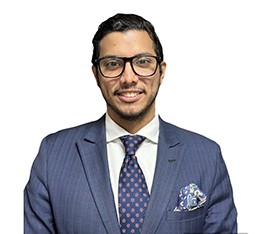

Chief legal officer | Trust Fiduciaria Administradora de Fondos y Fideicomisos



Andres Valentino Martín Vanegas
Chief legal officer | Trust Fiduciaria Administradora de Fondos y Fideicomisos
What are the most significant cases or transactions that your legal team has recently been involved in?
Our corporate legal team’s involvement in the fiduciary sector consistently produces remarkable results. We provide tailored solutions to our clients, based on their business needs and capitalising on the flexibility of Ecuadorian trusts. This empowers them to boost their income and cash flow, mitigate risks, establish trust agreements for real estate development, and acquire better investment opportunities within the local stock market. This is made possible through the collaborative efforts of our corporate lawyers, litigation experts, and our business intelligence.
My legal team has been involved in a variety of transactions over the past year, most notably structuring fiduciary solutions for local and international clients that helped grant and secure credit lines in excess of US$300m. Our trust agreements enable debtors in the public and private sectors to access credit lines with improved interest rates, repayment terms and, of course, greater flexibility in the associated legal terms. As said, for creditors, we create solutions that allow them to secure their credit lines with stronger collateral, ensuring quicker recovery compared to traditional foreclosure procedures.
Looking forward, what technological advancements do you feel will impact the role of in-house legal teams in the future the most? Which have you found most useful in your legal team?
The most relevant technological advancements that will impact our role as in-house counsel are business process automation software, contract structuring robots, and smart contract solutions. In our current operation, my legal team has been strengthened by engineering and utilising internally developed software for the automation of legal business processes, which has enabled us to be more efficient and effective in our internal and external assignments. This software reduces the number of personnel required for specific operational tasks, allowing our lawyers to focus on more strategic transactions.
As we live in a fast-paced world today, what skills will a corporate legal team need to succeed in the modern in-house industry?
It is incredibly important that the skills of corporate legal team members are well balanced to succeed in this modern legal industry. Our industry requires us to go beyond the ordinary skills of a traditional counsellor. The main skills necessary are corporate law, litigation strategy, commercial skills, business intelligence, negotiation skills, and financial strength. I have gained these insights from my time and experience as a chief legal officer in the fiduciary industry.
Our legal work is intertwined with the core business of the grantors and beneficiaries of our trusts, so as legal advisors we are obliged to understand what they do, how they do it and how they need our solutions to improve their business, therefore, having an in-house legal team with many different skills enables us to contribute to the success of our business.
The unusual business environment created by the pandemic has been swiftly followed by other shocks. Are you now putting more emphasis on preparing for the unforeseen and, if so, what does this entail?
The global pandemic had a far-reaching negative effect across the world, and the in-house legal industry was no exception. We experienced employee layoffs and budget cuts; however, the pandemic did teach us that in the legal industry we need to be prepared for the unforeseeable.
As of today, we have structured our team with a corporate and a litigation division, and we have undergone training in various areas, including remote business operations, videoconferencing software, and, notably, time optimisation skills and tools. The main action we have emphasised is software engineering for the automation of legal operational tasks and contract structuring, which in addition to allowing my lawyers to focus on more strategic transactions, has allowed us to improve asset and budget allocations.